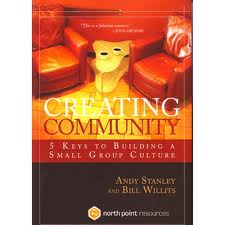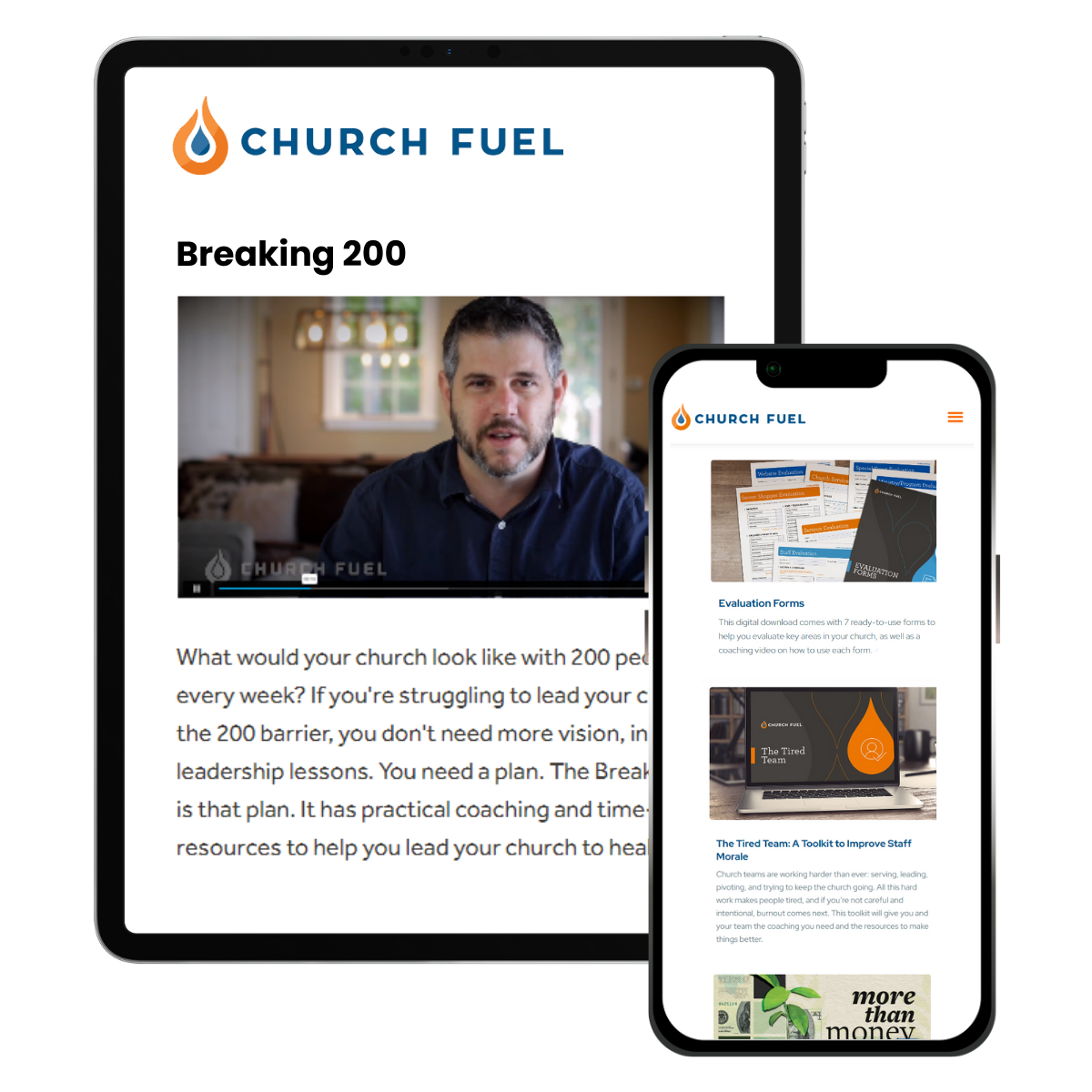If you’ve suddenly been given the responsibility to lead a group Bible study and are not sure what to do, don’t worry – help is at hand!
Let’s take a look at what it takes to run a successful church home group study and give you some lesson resources to help you along the way.
Small groups, house groups, cell groups, connect groups, Bible studies, care groups, life groups, home groups – anyone know why so many names for the same thing? Feel free to enlighten us in the comments below 🙂
Also check out:
- How To Start A Small Group Bible Study From Scratch
- How To Run A Bible Study (Even If You Never Have Before)
Okay that said, let’s get to it…
The Case For Small Groups
First off, just take a moment if you will to think about the potential of your group…
If you look back at your own journey, I am sure you pinpoint specific people God brought into your life who invested in you personally to either bring you to Christ or helped you grow in your Christian walk.
This most likely happened in a small group setting or a one-on-one friendship.
Am I right?
As a small group leader, you have the great responsibility and opportunity to invest in other people’s lives and hopefully develop life-long friendships along the way.
Conferences and preachers speaking to massive auditoriums full of 1000’s of people are great, but the true life change happens in the weekly home group Bible studies!
Without further ado here are 6 keys to leading an effective weekly Bible study…
1. Your Attitude, Not Your Ability Makes You Qualified
Who can lead a small group Bible study? You can!
Don’t worry if you don’t have a degree in Bible Scholarism (?), or if you’ve never led a home group before.
What is important is that you are continuing to grow in spiritual maturity and that your heart is continually seeking after God.
God is looking for a spiritual leader that:
a) Is able to give and receive Scriptural correction without offence (Proverbs 19:20-21)
b) Desires to serve rather than be served (Philippians 2:3-11)
c) Follows spiritual leadership within Scriptural guidelines (Hebrews 13:17)
d) Helps reconciliation when conflict arises (Matthew 5:21-26)
e) Is a man or woman of their word (Matthew 12:33-37)
2. Organising A Time & Place
Putting your own preferences aside, the location of your group should be determined by who your group reaching out to. You want your meetings to be accessible.
If you’re looking to reach out to non-Christians then have the group meet somewhere the unchurched would hang out (within reason!)
Generally speaking, an hour or two hours is a good time frame for your small group meetings.
However long it is, make it clear to the group and honour people’s time.
Our lives are getting busier and busier and if you are consistent, people will want to continue to be a part of the group because they know it will start and end on time.
Again, keep your group members in mind when choosing the best time and frequency of your meetings.
Hold the meetings at a time easiest for people to get to. (I’m sorry if I’m stating the obvious!)
3. Bible Study Lesson Plan Ideas
So it’s been a hectic day at work, your house is and there’s no food in the cupboards – oh, and you’ve just remembered you’re hosting a small group tonight!
We’ve all been there!
This is why I personally use Bible study lessons and discussion guides from Instant Small Group: 52 Sessions for Anytime, Anywhere Use.

Each week’s Bible study lessons are “open and go” for those who, for whatever reason, don’t have the time or energy to prepare.
They can be used by anyone in the group – not just the leader – and are perfect for road trips, retreats, coffeehouse conversations, or even as personal devotionals.
4. Make It More Than A Just Bible Study Lesson
How you format the group is entirely up to you and depends on what the focus and purpose of your particular small group is.
Think about opening with an icebreaker, maybe spend a few minutes casting your vision for the small group, worshipping together (singing along to YouTube praise and worship videos works well if you have no instruments or lead singers.)
You could also have a time of praying for one another and socialising before and afterwards.
This helps build strong friendships and creates a strong sense of community which means you have a solid group.
In his book ‘The Purpose Driven Church‘, Rick Warren proposes 4 elements that should be included in any home group format.
Please don’t be too regimental with this but I’m including it as it might be helpful to use as a guide.
1) Welcome
2) Worship
3) Word
4) Witness
You can ask people to take turns in bringing an icebreaker, picking songs and acting as MC.
Not only does this prevent you from going into headless chicken mode, but by giving responsibility to other people you are equipping and training leaders.
5. Ask The Right Questions To Generate A Group Discussion
In order to encourage engagement and generate a group discussion, you can give members opportunities to share their thoughts and feelings and provide feedback on what they’re learning.
Knowing how to ask the right questions can be great for getting the ball rolling.
Questions are great because they give people a voice it helps you to get feedback and how people are understanding the lessons.
Ask Open-Ended Questions: These are questions that allow group members to share any answer or relevant thoughts on the passage or subject being studied.
These types of questions are very valuable for group discussion. Open-ended questions stimulate thought and discussion because there are no right or wrong answers.
Examples: “What truths stand out to you in this passage?” “How does it make you feel when you think about what Jesus is saying here?”
Ask Questions that Help You Apply Scripture:
For example…
- What personal application or idea has God given you for this study?
- What reasons for praising God does this passage offer?
- What personal need or issue has the Holy Spirit exposed during this study?
- What aspects of this study encourage you most? Why?
- What truth(s) from this lesson can you illustrate from personal experience?
- What part of this study convicts you? Why?
- What “I never thought of that before” insight did you gain?
- What unresolved questions on this subject still bother you?
- Did any aspect of this lesson bring a role model to mind? Who? Why?
6. When A Group Gets Too Big (A Great Problem To Have)
An effective small group is one where everybody gets to contribute in some way.
Participation and engagement is the primary aim. When you’re teaching it’s not a sermon, rather it’s to generate a group discussion and people are there to listen to one another and offer advice and support.
Typically when a group reaches 10-12 people (a great problem to have by the way) it starts to become more difficult to manage the group effectively, and this is certainly when you want to start thinking about birthing a secondary group.
It is always wise to have one primary leader within the small group along with a co-leader.
Why?
One of the key strengths of small groups is the ability to train and raise up other leaders so that when your group does multiply, the co-leader becomes the primary of his group and in turn starts to invest in his new co-leader.
“And these things which you have heard from me in the presence of many witnesses, these entrust to faithful men, who will be able to teach others”
Final Thoughts
You want to work hard to ensure that people have a positive experience when they enter their group.
Did someone greet them and talk with them?
Were they included in the discussions?
Were their comments respected?
All of these things contribute to whether someone wants to continue to be part of the group.
Obviously, there’s a lot more to running Home Group Bible Studies than I’ve covered here, but I hope this helps as a good primer.
Another great resource you might want to look at is Creating Community by Bill Willits and Andy Stanley.
More than just another book about how to conduct a small group, this is a proven strategy for building a thriving small group culture in your local church.
How do you get ideas for your Bible studies?
How do you format your meetings?
Scroll down and share your comments.


You initially asked why so many different names for home groups…
“A rose by any other name smells just as sweet”
It’s all good brother
Oh of course! 🙂
I am starting a small group study (thinking about a name for the group, not “Bible study”) this coming week. I have been in a Thursday night men’s group for the last 2 years, and it has grown to 12-16. So I was led to start a study gathering at a shut in’s home who is totally limited from attending church due to an bike accident a few years back. 3-4 others have decided to join me. For the first session, I’d like to get some ideas from others, and on where the Spirit leads our study. I’d like to have it 1-2 times a month. I’m leaning toward a dvd study from a pastor , and then pose questions for the group afterwards.
Pray for me, others, and the one who needs the fellowship, and to be fed.
Am so thrilled ,this is information has been very helpful to me. God bless you
Hi, We are looking at initiating a small group fellowship with born again believers of all denominations, what do you think of the idea of putting together a questionnaire on what subject matter the group would study and let me know what other questions we should be asking on the questionnaire?
May the Lord richly bless your ministry and mission! Rex
I am looking to start an N.A. meeting at my church. I want in formation on how to start.All I am looking for is a phone number so I can talk to someone.If someone can help me it would be nice. Thanks Tom DiZazzof
In response to the below invitation to enlighten you with my answer to your proposed question is:
“ I started a “Bible Study” group with a book called The Year of Faith. I hesitated to call it a Bible Study because from my expierience many people are intimidated by the words “Bible Study” thinking they already have to know the Bible well. I prefer to call my group Friends of Faith study group opening it up for Everyone and all religions so that we are friends gathering to learn God’s Word better.
And I have a group of 12-14 who attend weekly!
Personal note: Small groups, house groups, cell groups, connect groups, Bible studies, care groups, life groups, home groups – anyone know why so many names for the same thing? Feel free to enlighten us in the comments below 🙂
Hi Noreen, it’s great to hear about your success in leading a small group Bible study! How did you grow the group? Was it an emphasis on building strong relationships within the group? How do you structure your group?
May God bless you and continue to bless the work of your hands as you build disciple making disciples.
This information is a great help.
That’s great to hear, thanks Terrance!
I would like ken to purchase the book Instant Small Groups as mentioned above but I am in the UK.
Is it available here?
David
Hi David, yes you can buy it from UK sellers on Amazon.co.uk, here’s the direct link.
I use this book myself for when I’m leading a church home group, it’s full of teaching ideas and Bible study lessons.
I am going to be hosting a small group study right after thanksgiving. This will be my first one. Looking on going verse by verse and going in depth in Gods word. Also will be having a second night to look at how God’s word shows us about what is going on around the world.
Hosting my first Bible study in my home tonight. Have a great lesson prepared and discussion topic… plus snacks. Have about 7 couples invited… nervous that no one may come…I could use tips on how to draw more attention to this.
Hi Jay, it sounds like you have that “happily-terrified” feeling! It’s a good place to be in : )
Do you mean you’d like more tips on how to invite and get more people to come to a Bible study/home group? This is actually right where I’m at right now and I’m thinking about doing a small group series covering how to connect with people, how to build a sense of community and belonging, how to use church small groups to raise up leaders and so on.
Please, please let me know how your first home group went, I would love to hear from you. Every blessing.
Thanks for the idea and information you shared thru this page.
You are more than welcome Joseph, I’m glad this helped.
How can I get these books
Hi Elias, my apologies, the GrowChurch website has just had a recent overhaul with a brand new theme and design. The links should now be working. Let us know how you get on!
I would like to get materials to help me lead small groups if posible
If you click on the links to any of the materials and resources I’ve talked about here you should be able to find them on the Amazon marketplace and they usually have the best prices. Hope this helps.